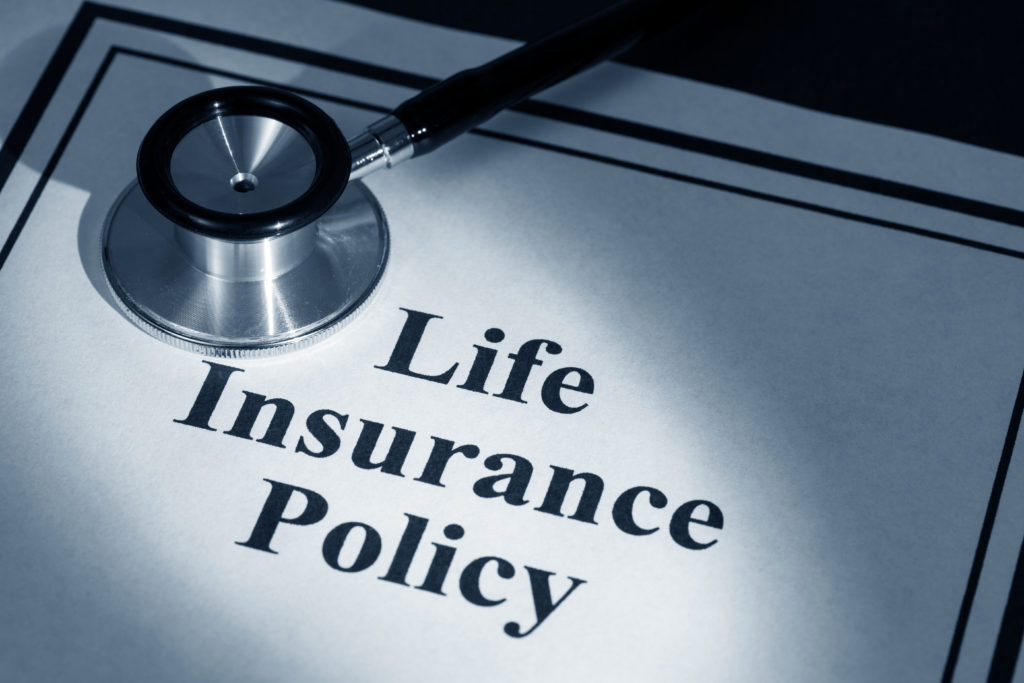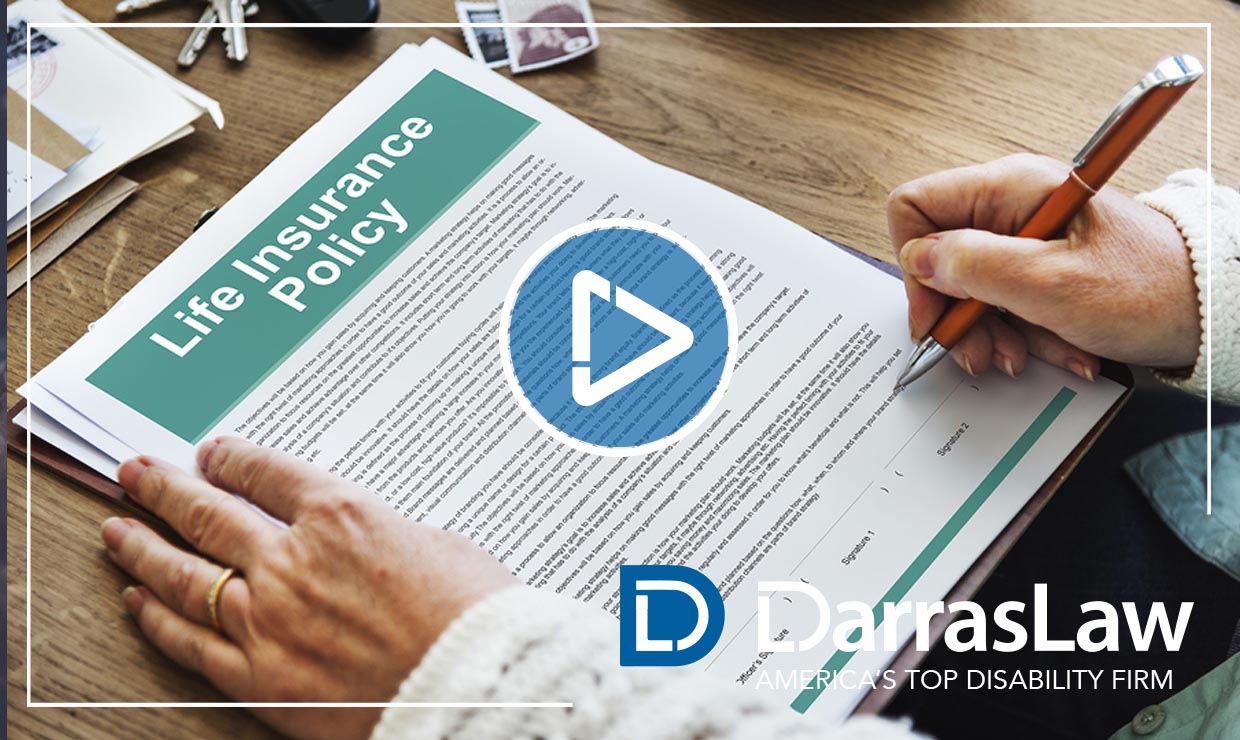Own life insurance policy Idea
Home » Trend » Own life insurance policy IdeaYour Own life insurance policy images are available. Own life insurance policy are a topic that is being searched for and liked by netizens today. You can Get the Own life insurance policy files here. Get all free photos and vectors.
If you’re looking for own life insurance policy pictures information linked to the own life insurance policy keyword, you have pay a visit to the ideal blog. Our website frequently provides you with hints for downloading the maximum quality video and picture content, please kindly surf and locate more enlightening video articles and graphics that match your interests.
Own Life Insurance Policy. Owning a policy on your life is the most common. Policyholders are required to establish a. A policy owner may also be the life insured. If you own the life insurance policy, you have control over it.
 Group Term Life Insurance Group Term Insurance Plan From singh-insurancegroup.com
Group Term Life Insurance Group Term Insurance Plan From singh-insurancegroup.com
There are three basic life insurance roles: The easiest and most practical way is to never own it in the first place. However, any person or legal entity can own life insurance on another person as long as the policyowner has an insurable interest in the insured. The policyholder, the insured and the beneficiary. The owner of a life insurance policy is the person who has control over all of the policy’s changes and rights. The owner, the life insured and the beneficiary.
If you own the life insurance policy, you have control over it.
Policyholders are required to establish a. There are three main components to a life insurance policy: Depending on the ownership type, the policy owner is generally either the insured or the beneficiary. Owning a policy on your life is the most common. You may transfer ownership of your policy. Should i own my life insurance policy?
 Source: singh-insurancegroup.com
Source: singh-insurancegroup.com
Let’s talk about why you may want your own life insurance policy in. If you own life insurance policies at your death, the proceeds will be included in your taxable estate. The numbers imply term life insurance is a far more popular policy for consumers overall, but that a growing number of people are more inclined to buy permanent. You can own a life insurance policy on someone else and be both the policyowner and the policy beneficiary but you cannot be the insured and the beneficiary. Unless there is a substantial interest or mutual consent to the insurability of the life insurance policy, any individual or legal entity can own life insurance on another individual as long as they have expressed an interest to.
 Source: forbes.com
Source: forbes.com
The policy owner pays for the policy and has full and total control to cancel or change the policy. As the name states, coli refers to life insurance that is purchased by a corporation for its own use. The purpose of buying a policy helps in evaluating the insurance amount you require for the fulfillment of the same. The decision to own your life insurance policy depends on how much control you’d like over the policy and whether your loved ones benefit from owning the policy themselves. You are responsible for paying the policy premiums each month or annually.
 Source: entrustsettlements.com
Source: entrustsettlements.com
If you own the life insurance policy, you have control over it. The purpose of buying a policy helps in evaluating the insurance amount you require for the fulfillment of the same. The owner, the life insured and the beneficiary. The existing policy should have at least $100,000 in face value. You may transfer ownership of your policy.
 Source: doereninsurance.com
Source: doereninsurance.com
In 2019, 71% of consumers who owned life insurance had a term life policy, up from 63% in 2017. The purpose of buying a policy helps in evaluating the insurance amount you require for the fulfillment of the same. Life insurance proceeds are not taxable as income, but if you’re not careful about ownership of the policy, the proceeds are subject to the estate tax, which means 40 cents out of every dollar might be lost. 44% of policyholders owned a permanent life insurance policy , which increased from 35% in 2017. You can own a life insurance policy on someone else and be both the policyowner and the policy beneficiary but you cannot be the insured and the beneficiary.
 Source: longtermdisabilitylawyer.com
Source: longtermdisabilitylawyer.com
There are three main components to a life insurance policy: Only the beneficiaries mentioned on the policies are entitled to collect to the life insurance death benefit. Ownership is usually determined by several factors, including who has the right to name the beneficiaries of the proceeds. In 2019, 71% of consumers who owned life insurance had a term life policy, up from 63% in 2017. If you own life insurance policies at your death, the proceeds will be included in your taxable estate.
 Source: revisi.net
Source: revisi.net
Life insurance (or life assurance, especially in the commonwealth of nations) is a contract between an insurance policy holder and an insurer or assurer, where the insurer promises to pay a designated beneficiary a sum of money upon the death. The owner, the life insured and the beneficiary. You are responsible for paying the policy premiums each month or annually. Owning a policy on your life is the most common. Most people do own the policy that insures their own lives, giving total control over adjusting the coverage, benefits and beneficiaries.

That is, the insured party should not be the owner of the policy, but rather, the beneficiary should purchase and. With this type of policy ownership, you pay the premiums, you are named as the insured on the policy, and you control all of the ownership rights. That is, the insured party should not be the owner of the policy, but rather, the beneficiary should purchase and. Often, employers will offer a simple life insurance policy as a benefit for employees. Who should own your life insurance policy?
 Source: forbes.com
Source: forbes.com
As the name states, coli refers to life insurance that is purchased by a corporation for its own use. If you’re the insured but not the owner you don’t get a say other than giving the initial required consent. Ownership is usually determined by several factors, including who has the right to name the beneficiaries of the proceeds. Who can be the owner of a life insurance policy? You may transfer ownership of your policy.
 Source: rightsinsurance.com
Source: rightsinsurance.com
If the deceased was in the workforce, or even if they were retired, it is helpful to check with former employers. Life insurance proceeds are not taxable as income, but if you’re not careful about ownership of the policy, the proceeds are subject to the estate tax, which means 40 cents out of every dollar might be lost. There are three basic life insurance roles: Who should own your life insurance policy? If you already own a life insurance plan, then it is important to know the benefit of buying an additional policy and what value it will a
 Source: youtube.com
Source: youtube.com
You can own a life insurance policy on someone else and be both the policyowner and the policy beneficiary but you cannot be the insured and the beneficiary. The policy owner pays for the policy and has full and total control to cancel or change the policy. The numbers imply term life insurance is a far more popular policy for consumers overall, but that a growing number of people are more inclined to buy permanent. Depending on the ownership type, the policy owner is generally either the insured or the beneficiary. Labor unions, professional organizations and more can provide this as a benefit of membership.
 Source: pinterest.co.uk
Source: pinterest.co.uk
The owner of a life insurance policy is the person who has control over all of the policy’s changes and rights. Often, employers will offer a simple life insurance policy as a benefit for employees. You may transfer ownership of your policy. That is, the insured party should not be the owner of the policy, but rather, the beneficiary should purchase and. The corporation is either the total or.
 Source: buylifeinsuranceforburial.com
Source: buylifeinsuranceforburial.com
Labor unions, professional organizations and more can provide this as a benefit of membership. If you’re the insured but not the owner you don’t get a say other than giving the initial required consent. Policyholders are required to establish a. The existing policy should have at least $100,000 in face value. The numbers imply term life insurance is a far more popular policy for consumers overall, but that a growing number of people are more inclined to buy permanent.
 Source: advisorcafe.ca
Source: advisorcafe.ca
If you already own a life insurance plan, then it is important to know the benefit of buying an additional policy and what value it will a If you own life insurance policies at your death, the proceeds will be included in your taxable estate. The purpose of buying a policy helps in evaluating the insurance amount you require for the fulfillment of the same. You determine how long your coverage lasts; Being the owner of a life insurance policy means:
 Source: tier1capital.com
Source: tier1capital.com
Depending on the ownership type, the policy owner is generally either the insured or the beneficiary. Most people do own the policy that insures their own lives, giving total control over adjusting the coverage, benefits and beneficiaries. With this type of policy ownership, you pay the premiums, you are named as the insured on the policy, and you control all of the ownership rights. The policyholder, the insured and the beneficiary. Ownership is usually determined by several factors, including who has the right to name the beneficiaries of the proceeds.

The policyholder, the insured and the beneficiary. There are three main components to a life insurance policy: The existing policy should have at least $100,000 in face value. Unless there is a substantial interest or mutual consent to the insurability of the life insurance policy, any individual or legal entity can own life insurance on another individual as long as they have expressed an interest to. With this type of policy ownership, you pay the premiums, you are named as the insured on the policy, and you control all of the ownership rights.
 Source: huffingtonpost.com
Source: huffingtonpost.com
Labor unions, professional organizations and more can provide this as a benefit of membership. The existing policy should have at least $100,000 in face value. In 2019, 71% of consumers who owned life insurance had a term life policy, up from 63% in 2017. Policyholders are required to establish a. The policyholder, the insured and the beneficiary.
 Source: revisi.net
Source: revisi.net
The person who owns the life insurance policy can access the cash value, decide on its beneficiaries or change them. A policy owner may also be the life insured. Life insurance proceeds are not taxable as income, but if you’re not careful about ownership of the policy, the proceeds are subject to the estate tax, which means 40 cents out of every dollar might be lost. There are three basic life insurance roles: Labor unions, professional organizations and more can provide this as a benefit of membership.
 Source: tier1capital.com
Source: tier1capital.com
Life insurance (or life assurance, especially in the commonwealth of nations) is a contract between an insurance policy holder and an insurer or assurer, where the insurer promises to pay a designated beneficiary a sum of money upon the death. If you own life insurance policies at your death, the proceeds will be included in your taxable estate. Life insurance proceeds are not taxable as income, but if you’re not careful about ownership of the policy, the proceeds are subject to the estate tax, which means 40 cents out of every dollar might be lost. Labor unions, professional organizations and more can provide this as a benefit of membership. If you’re the insured but not the owner you don’t get a say other than giving the initial required consent.
This site is an open community for users to share their favorite wallpapers on the internet, all images or pictures in this website are for personal wallpaper use only, it is stricly prohibited to use this wallpaper for commercial purposes, if you are the author and find this image is shared without your permission, please kindly raise a DMCA report to Us.
If you find this site beneficial, please support us by sharing this posts to your own social media accounts like Facebook, Instagram and so on or you can also save this blog page with the title own life insurance policy by using Ctrl + D for devices a laptop with a Windows operating system or Command + D for laptops with an Apple operating system. If you use a smartphone, you can also use the drawer menu of the browser you are using. Whether it’s a Windows, Mac, iOS or Android operating system, you will still be able to bookmark this website.

Category
Related By Category
- Vicarious liability insurance definition Idea
- Staples insurance information
- Youi car insurance claim Idea
- T mobile insurance for iphone x information
- Shelter insurance fayetteville ar information
- Roger smith insurance Idea
- Scotia insurance eastern caribbean limited Idea
- Toronto condo insurance average rates information
- Sell life insurance policy calculator Idea
- Velox insurance hiram information